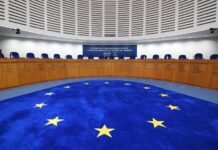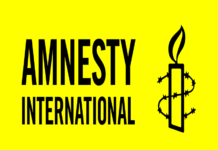Turkish President Recep Tayyip Erdoğan on Wednesday delivered a scathing attack on the Turkish Industrialists and Businessmen’s Association (TÜSİAD), accusing the country’s most influential business group of overstepping its bounds after it issued a rare public rebuke of government policies, citing economic instability, democratic backsliding and erosion of the rule of law, Turkish Minute reported.
Speaking at a parliamentary group meeting of his ruling Justice and Development Party (AKP), Erdoğan condemned TÜSİAD’s leadership, claiming that the association’s recent statements represented an attempt to exert political influence similar to past periods when it was seen as a dominant force in shaping state policy.
“TÜSİAD has overstepped its bounds with its statement,” Erdoğan declared, accusing the group of trying to undermine his government by spreading what he called baseless fears about the country’s political and economic trajectory. “In democracies, no one is beyond criticism,” he said but added that TÜSİAD’s stance was not constructive criticism but an attempt to interfere in governance.
TÜSİAD, which represents Turkey’s most powerful industrialists and business leaders, had warned earlier in the week about a “crisis of confidence” in Turkey, pointing to a series of political arrests, increasing state intervention in the economy and restrictions on freedom of expression. The association also expressed concern over the dismissal of military officers and a newly passed law that grants the State Inspection Council (DDK) broad powers to remove public servants from their posts without judicial oversight.
In his response Erdoğan framed TÜSİAD as a relic of the “old Turkey,” when, he claimed, business elites dictated policy to elected governments.
“You may long for the old Turkey, where you were beyond the reach of the law, but in the new Turkey, you will know your place,” he said, vowing that his government would never bow to “puppet masters” seeking to restore what he called a “privileged system.”
Erdoğan accused the business group of “aligning with opposition figures like obedient servants” and seeking to “bring down the government through economic sabotage.” He claimed that TÜSİAD’s leadership was “troubled because they can no longer divide up the state treasury as they wish.”
During its general assembly last week, TÜSİAD’s leadership, including its chairman Orhan Turan and High Advisory Council President Ömer Aras, criticized the government’s handling of the economy and legal system, warning that “systemic risk” was mounting.
Aras described the country as experiencing a “collapse of governance,” blaming unchecked state intervention, deteriorating judicial independence and a rise in politically motivated arrests. He pointed to the recent dismissal of newly commissioned military officers, the appointment of government trustees to replace elected mayors and the jailing of opposition figures and journalists as indicators of democratic decline.
Turan, in his remarks, lamented the economic conditions under which both businesses and workers were struggling, stating, “Neither industrialists nor employees are happy. Neither large corporations nor small businesses can see a future. If everyone is suffering, who is benefiting?”
In his speech, Erdoğan dismissed the concerns raised by TÜSİAD, claiming that the association’s criticism stemmed from frustration over losing its grip on Turkey’s political landscape. He argued that his government had lifted restrictions on democracy rather than imposing new ones and claimed that “those who are demoralized are TÜSİAD’s fixtures, who can no longer divide up the state treasury as they please.”
Referring to Turkey’s recent natural disasters, including the devastating 2023 earthquakes, Erdoğan accused TÜSİAD of failing to provide sufficient aid while criticizing the business community for using such crises to attack the government. “Hey, TÜSİAD, what did you do in the face of the earthquake disaster? How much support did you provide along with the Disaster and Emergency Management Authority?” he asked.
Erdoğan also accused the group of attempting to manipulate public sentiment and exert pressure on the judiciary, warning that “Turkey is not your private property, the nation is not your workforce, and politicians are not your salaried employees.” He called on the association to either “stick to business” or “form a political party” if it wanted to engage in governance.
The rift between the Erdoğan government and Turkey’s top business leaders comes amid increasing scrutiny of economic policies that have led to high inflation, currency depreciation and a significant decline in foreign investment. The government has implemented a series of measures to pressure companies to keep assets in Turkish lira and limit access to foreign currency, leading observers to label them capital controls in all but name.
Critics argue that these measures have stifled economic growth and created uncertainty among investors. The TÜSİAD executives’ recent remarks suggest that concerns over economic mismanagement are deepening in the business community, which had largely refrained from publicly challenging the government in recent years.
The political opposition has largely backed TÜSİAD’s statements, with opposition leaders calling for urgent reforms to restore economic stability and judicial independence.
However, Erdoğan’s ruling Justice and Development Party (AKP) and its allies have responded with a sharp rebuke. Justice Minister Yılmaz Tunç said that “no business group is above the national will” and warned that the government would “strongly respond” to attempts to influence state affairs.
Following Tunç’s remarks, the İstanbul Chief Public Prosecutor’s Office launched an investigation into the TÜSİAD’s High Advisory Council President Aras.
The prosecutor’s office claimed that Aras had made “influential … remarks about certain investigations and prosecutions, along with false statements that could disrupt the public peace.”
TÜSİAD was once viewed as a powerful force in Turkish politics, particularly in the early 2000s when its statements carried significant weight in shaping government policy. However, since a coup attempt in 2016, the association has largely avoided direct confrontations with the government, as many business leaders feared economic and legal repercussions.















